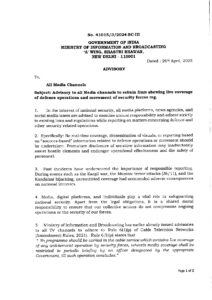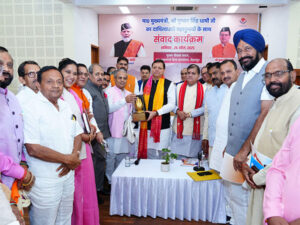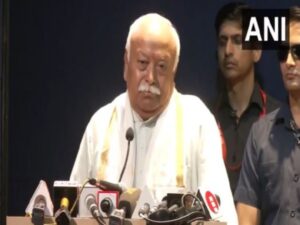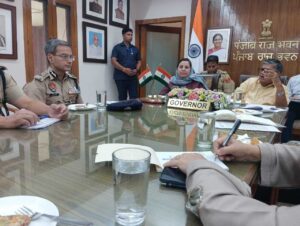PIL to mandate use of verifiable digital signatures for medical practitioners, Delhi HC asks petitioner to make representation to authorities
New Delhi [India], July 24 (ANI): The Public Interest Litigation (PIL) filed in the Delhi High Court seeks to mandate the use of verifiable digital signatures for all medical practitioners when using electronic media. This step is proposed due to concerns about the widespread fabrication of patient documents such as clinical lab reports, medical prescriptions, and certificates.
The PIL aims to ensure authenticity and integrity in medical records and prescriptions transmitted electronically, addressing the alleged increase in fraudulent practices in healthcare documentation, plea stated.
The bench led by Acting Chief Justice Manmohan also comprising Justice Tushar Rao Gedela after noting the submissions directed the petitioner to approach concerned authorities first through a representation. The court also asked the respondents’ authorities to decide the representation within the time frame.
The petitioner, Dr Rohit Jain, through his counsel, Advocate Shashank Deo Sudhi, stated that a patient’s test results in a laboratory are checked, correlated clinically after testing and authenticated by signing the reports prior to its release by a registered medical practitioner with recognised medical qualification who is responsible for its correctness and is medicolegally liable.
As per the reply to an RTI by the petitioner dated December 3, 2019, erstwhile MCI held that physical presence is necessary to sign the reports but MCI regulations are silent on the validity of digital signatures on lab reports.
In the current business works scenario, the reports are digitally authenticated on computerised systems. The doctor logs into the computerised system with the user ID and password. The reports then are authenticated by the doctor. On finishing the work, the doctor must log out of the computerised system. The laboratories keep a picture of doctor signatures in the computerised systems. These signatures are pasted on the authenticated reports while printing or making pdf reports. This method of signature printing has eased the work of authenticating doctors but has created problems stated the plea.
The Doctor occasionally visits the laboratories but allows their associates to use the doctor’s signature without the doctor ever viewing/reviewing the work. Even in circumstances where the doctor resigns from such laboratory, the signature of the doctor is being used by the laboratory, which allows the signature of the doctor to be used in his/her absence, the plea added.
The plea also stated that there is no policy document, regulating the illegal use of scanned copies of signatures on clinical or medical reports, which are exposed to fabrication and manipulation on account of competitive commercial interest and such an unregulated atmosphere in issuance of fabricated medical/clinical report is proving to be catastrophic, leading to the mistreatment of innocent of patients.
The plea sought direction for laying down broad and comprehensive guidelines to regulate the illegal usage of fake and false scanned signature pictures in the name of digital signatures being used for authentication of medical diagnostic laboratory reports, medical prescriptions, or certificates, including documents of a similar character in medical diagnostic laboratories, hospitals, clinics and all categories of clinical establishments.






